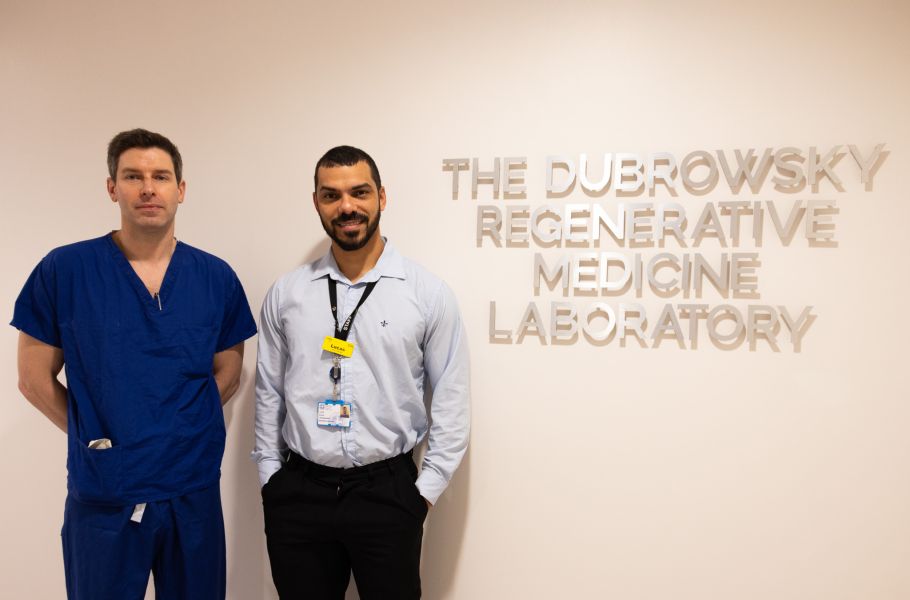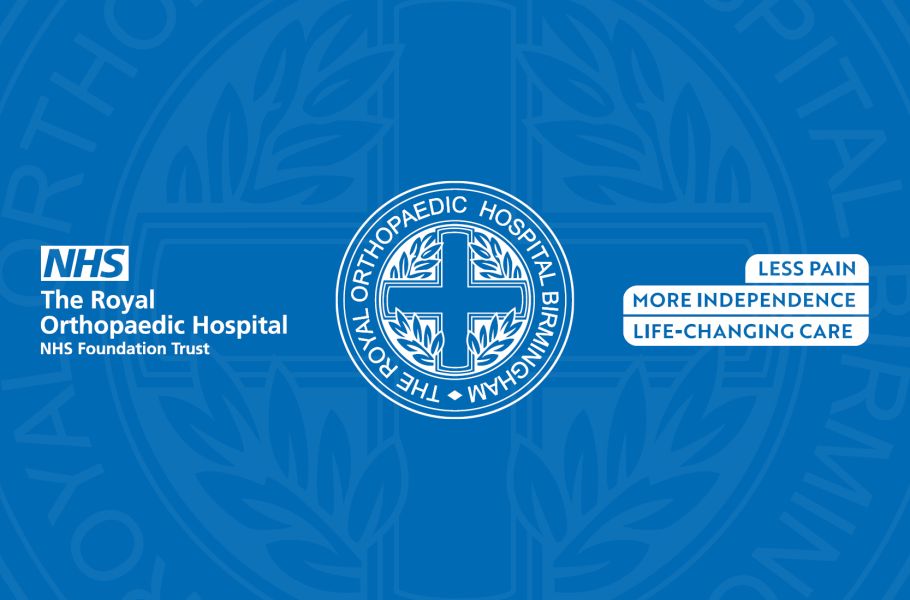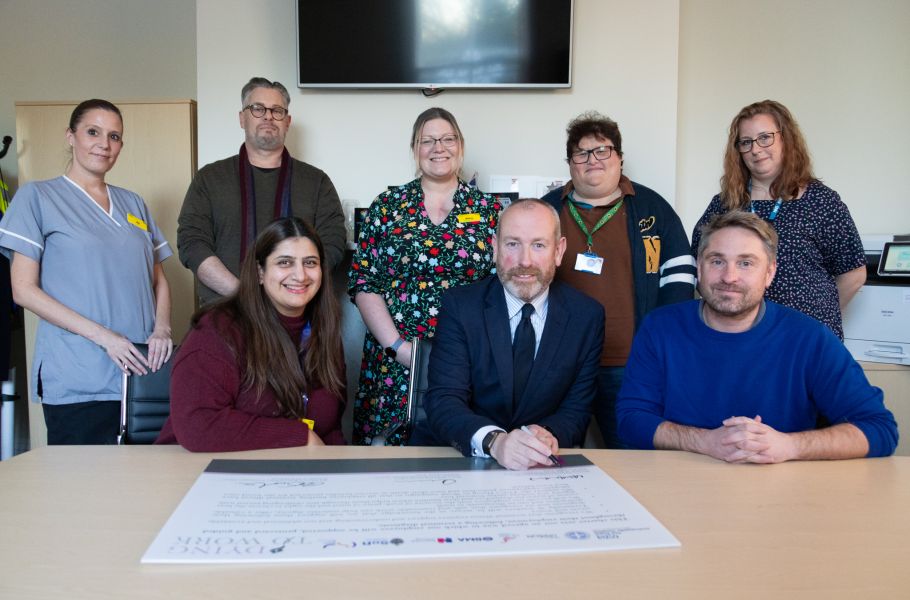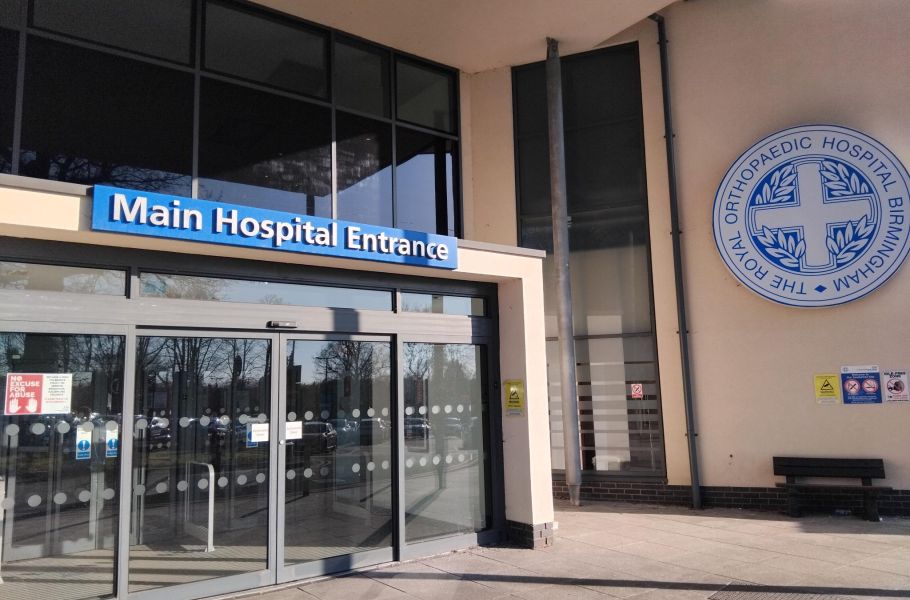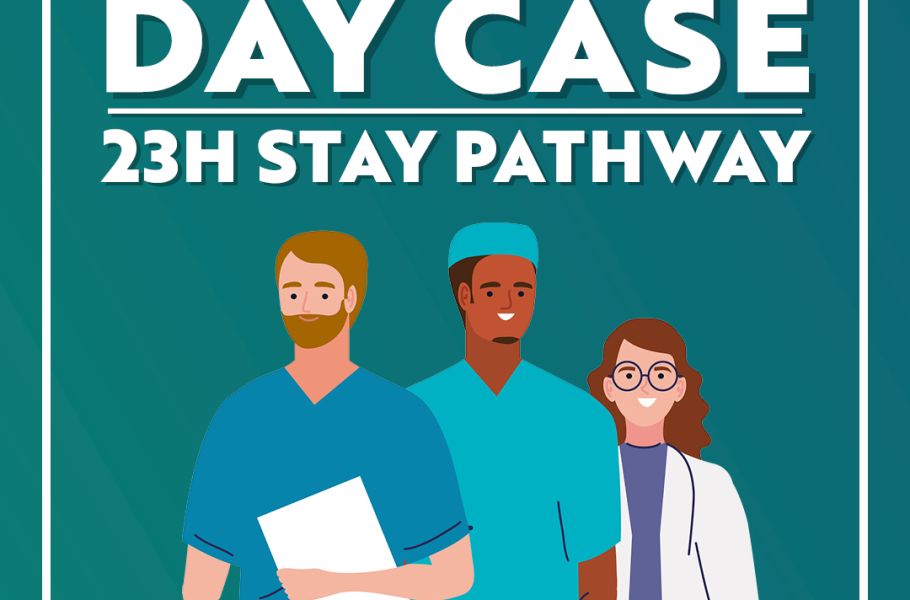Denosumab – moving from clinical trial to standard of care, a foundational story

Denosumab was one of the first clinical trials our research team were involved with. At the time, the research team was very small, consisting of a research nurse, lead research nurse, part time pharmacist, administrative support, and a department lead. Now the research team consists of 22 staff members in Research Delivery, Data Managers, Research Tissue Bank, Genomics and Governance but it all started back in 2010 with the Denosumab study.
Denosumab is a treatment option for some patients with Giant Cell Tumours (GCT). GCTs grow in the bone and while benign (non-cancerous), they can be incredibly aggressive and the damage they cause can be debilitating. This is because they can grow very quickly and can be really damaging, weakening the bone which increases the chances of the bone fracturing or breaking (osteonecrosis).
The treatment options for GCT focused mainly on curettage and cementation, where the surgeon cleans out the GCT from the bone and replaces the space with a material called bone cement. However, the tumour can come back, even more aggressive than before. Another option is surgery where the affected bone is removed and replaced with a special kind of joint replacement.
GCT can also present somewhere in the body where surgery isn’t possible, such as in the skull or the sacrum (the large triangular bone at the base of the spine). The Denosumab clinical trial sought to explore the use of Denosumab at putting the tumour to sleep (remission) as a secondary way of treating these patients. For those where surgery wasn’t an option and for those who wanted an alternative option to curettage, Denosumab was and has been a lifeline.
Because Denosumab would effectively put the tumour to sleep, it would give the body time to heal and strengthen the bone. It would also negate the effects of such an invasive tumour, pain and risk of fracture.
The trial was global, and The Royal Orthopaedic Hospital was the only UK site to be included in the trial due to the Trust’s specialism in orthopaedic oncology. The trial was led at ROH by Principal Investigator, Professor Rob Grimer, an Orthopaedic consultant at the Trust. It was later handed over to Mr Michael Parry, Orthopaedic consultant, who helped to lead the Denosumab trial into standard of care.
The impact of Denosumab
Patients with GCT often see a drastic reduction in quality of life. The biggest impact is on their pain, mobility, and activity of daily living. In some cases, requiring a wheelchair or crutches to walk due to the debilitating pain from the tumour growth into the bone and soft tissue. Because Denosumab strengthens the bone, this reduces the chance of bone fracturing and significantly reduces pain. Patients who normally have a morbid presentation – e.g. a GCT that may be inoperable due to location of tumour, often have limited options for treatment as surgery isn’t a viable option. Denosumab brings relief that would otherwise not be possible. Patients can get back to their lives, reduce reliance on walking aids and live with far less pain.
Claudette Jones, Clinical Research Nurse, who worked alongside the consultants to coordinated and facilitated the Denosumab trial, started her research career at the Royal Orthopaedic Hospital (ROH). She managed a portfolio of research trials including the Denosumab trial. She explains what it’s been like making the move from a staff nurse to a clinical research nurse. “Stepping from the wards into the vibrant world of research at ROH has been quite the ride! Leading a massive project for our team has shown me just how incredible this field can be. There's a whole world of resources waiting to be explored here, which helps to improve patient experiences and reduce their pain as well as, create an environment to support staff growth, development, and retention. My biggest tip for anyone considering research is to just jump right in. It's where we not only build our knowledge but also get to collaborate with experts from all over the globe, making a real impact on improving and creating better treatment pathways for patients."
Embedding into standard of care
Since the Denosumab clinical trial has closed, its use has been embedded as standard of care at the Trust. Anita Killingworth, Macmillan Oncology Nurse Consultant at the Royal Orthopaedic Hospital, set up a nurse-led Denosumab clinic that all patients who are eligible for the drug go through. This included writing the protocol for how the service needed to be run and what competencies the delivery team needed to ensure patients get the best experience they can in the clinic. Anita and her team work closely with the Orthopaedic Oncology consultants and patients on their treatment plans and leverage the Multi-Disciplinary Team meetings to triage and assess patients through their pathway.
Anita comments: “While the original clinical trial proved the positive impact Denosumab has on GCT patients, we’re continuing to learn and adapt. During initial implementation into standard of care for example we’ve learned best practice in managing calcium levels and the risk for osteonecrosis of the jaw which have all been fed into our protocols.
In recent months we’ve implemented ultra-short course Denosumab where we give patients two treatments prior to surgery with evidence this helps for cleaner excision of the tumour. We’ve also worked to build up a network with consultants across the UK to give patients who live a long distance away the option of having their treatment locally, cutting down their visits to Birmingham.”
The journey from Denosumab's initial clinical trial to integration as standard care showcases the transformative power of collaborative research and dedicated clinical practice. Denosumab's impact extends beyond tumour suppression, offering profound relief from pain and restoring mobility for patients with Giant Cell Tumours. Denosumab's journey serves as a beacon, inspiring continued pursuit of excellence and dedication to enhancing patient outcomes and highlights the role of ongoing learning beyond implementing as standard of care.
Paving the way for future research
Since the start of the Denosumab trial and subsequent transition to standard of care, the research team has continued to expand. The 22-strong team is exploring new approaches to improve physiotherapy rehabilitation, advanced therapies to regenerate diseased bone tissue, pharmaceutical treatments which aim to reduce the need for invasive surgery and speed up recovery. As its legacy lives on in the portfolio of live clinical research at the Royal Orthopaedic hospital the story of Denosumab is an exemplar of the power of research in changing patients’ lives.
